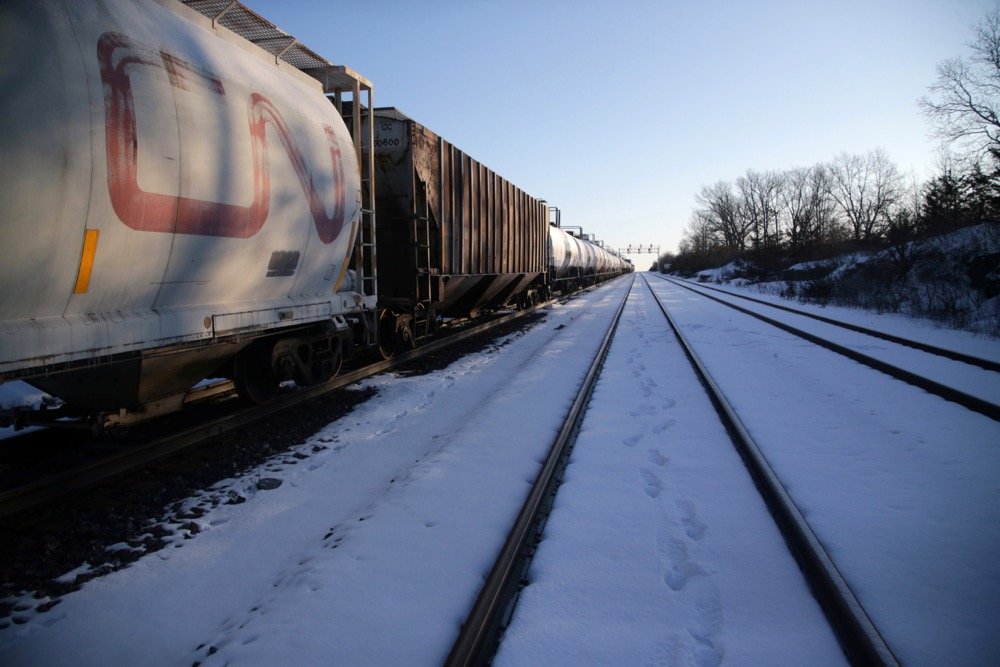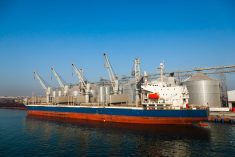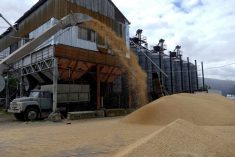Our latest so-called national crisis led to calls for police to arrest protesters and tear down blockades, but perhaps we should be thinking about how to prevent conflicts like this from happening in the first place.
It’s amazing how much can change in just a few days.
Canada’s Agriculture Day on Feb. 11 brought together a wide variety of people involved in the sector during the early stages of what has now grown into an apparent national crisis.
As producers, advocates and others working in agriculture gathered in Ottawa for the main event there was without doubt a general recognition of the blockade’s existence, most notably when CN’s executive vice-president Sean Finn made mention of the protests during his brief remarks at the celebratory conference.
Read Also

Dryness poised to threaten Saskatchewan crops
Crops in Saskatchewan are developing in opposite directions, the province’s latest crop report said. Growing conditions in the province vary, with some areas receiving enough rain while other locations are experiencing crop stress due to hot, dry conditions.
Absent from the room was any panic or major concern over the protests that had begun just five days prior.
Perhaps nobody predicted where the country would be a few weeks later, with politicians overreachingly stating the country is (again?) in a state of crisis, while farm groups decry the economic impact of the rail stoppages.
There’s no denying the very real effects on farmers. The ships currently waiting in port put 2020 on track to match the disastrous winter of 2013-14 for grain shipments. Farmers and other small businesses are caught in the middle on this one, just as they are when unions and employers can’t reach agreement.
However, suggesting trains being stopped for a few weeks is a “national crisis,” as Conservative leader Andrew Scheer and others have, overstates the issue and perhaps undermines instances of true crisis where imminent danger is threatening or present.
It can also encourage inflammatory, knee-jerk reactions from those involved. It is difficult to imagine anything less helpful when it comes to finding a solution for the country’s current predicament with the rail blockades.
Driving a vehicle through a group of people blocking your path because you disagree with them will only harden their resolve. Vigilantes who take the law into their own hands by attempting to remove a blockade will only embolden the protestors to make their next barricade stronger.
Both actions are also illegal, discrediting the popular and fair “rule of law” argument that the protests should end because they, too, are illegal. Two wrongs don’t make a right.
At the heart of the protests are hereditary Wet’suwet’en chiefs in B.C. who oppose the Coastal GasLink project travelling through their traditional territory.
Of course, wanting urgent action to get trains moving is a reasonable request, given that a majority five of the six band councils making up the Wet’suwet’en Nation support the pipeline’s construction, alongside 20 other First Nations’ band councils.
But there needs to be a recognition from all involved that a deep breath with a side of good thinking is needed, in spite of the still-untold number of economic losses arising from weeks of grain trains being cancelled and passengers unable to travel.
Perhaps some of that good thinking can consider how a relatively small group of people can threaten the country’s economy in such a direct way, and how to prevent it from happening again.
In short, the goal of protesting is to inconvenience people to gain attention for a particular cause.
According to the Office of the Wet’suwet’en, the official organization representing the hereditary chiefs, there are seven chiefs listed.
While there are varying reports on the number of hereditary chiefs (some reporting suggests as many as 13), a small group of people is demonstrating how easy it is to mobilize supporters and significantly demobilize the day-to-day lives of thousands of Canadians, including farmers nervously wondering how their grain will get shipped.
Having RCMP officers crash-and-bang away at the protestors will only bolster further support of the protestors’ actions and threatens to look Oka-esque when the historians take over.
Canadians have an opportunity to instead turn this so-called national crisis into a national epiphany by recognizing how necessary reconciliation is with First Nations’ communities.
Perhaps the First Nations fuelling the protest can in turn recognize the need for democratic decision-making and rule of law within Canada.
Genuinely listening to concerns and taking steps to address them is needed.
Also needed is acknowledgement of the cost to those who have done nothing to cause the standoff, but find themselves caught in the crossfire.
Should farmers be mad at the protestors or should their anger be focused at the governments behind the systemic injustices that give rise to these sorts of protests?
Unfortunately for farmers, they are left to suffer from the actions of both.
— D.C. Fraser writes for Glacier FarmMedia from Ottawa.














